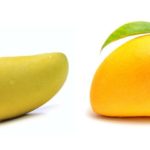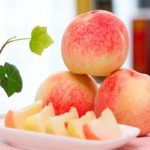Peaches
Peaches are a type of fruit that can be challenging to wash thoroughly due to their fuzzy skin. In terms of the amount of pesticide residue they can carry, peaches rank second only to celery. Recently, peaches imported from China have become more prevalent in the Vietnamese market, so it’s important to be cautious when making a purchase.
Large peaches, often referred to as “donut peaches,” tend to have a shiny and appealing appearance. However, due to their susceptibility to bruising and water loss during transportation, sellers often soak them in industrial citric acid to maintain their attractive color and make them firmer and crisper. Consuming peaches treated with this chemical can lead to allergies, nerve damage, and even an increased risk of cancer.
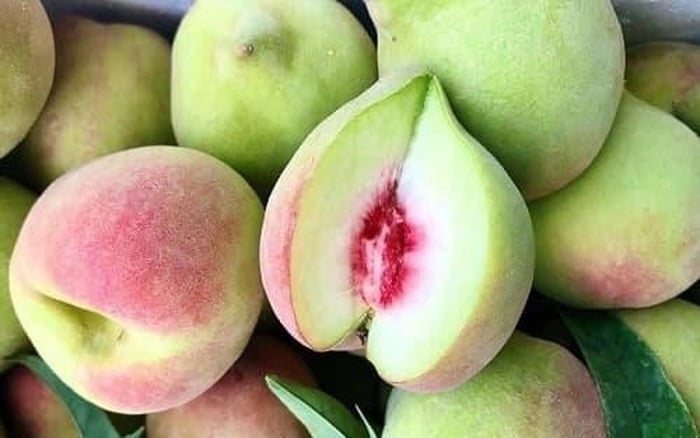
Peaches, with their fuzzy skin, rank second only to celery in the list of fruits difficult to wash off pesticide residue.
We are currently in the peak of peach season, and those plump, round peaches certainly catch the eye. While some may assume that larger peaches are less flavorful and more spongy, it’s not always the case that smaller peaches are sweeter and crisper. So, how can you select a delicious peach?
First, take a close look at the fuzz on the peach’s skin. Peaches with a fine layer of small fuzz are typically fresher. Peaches that have lost their fuzz have likely been transported and stored for an extended period. While some people prefer to choose fuzz-free peaches for easier cleaning, freshly picked peaches usually have a distinct layer of fuzz.
Don’t be fooled by the color; not all bright red or pink peaches are sweet. The red color of a peach indicates that it has received ample sunlight. The best peaches have a uniform golden pink hue, with a slight reddish tint. Peaches with uneven red coloration have likely been exposed to sunlight from different angles.
Finally, when buying peaches, examine the bottom of the fruit. If the bottom is pinkish-red, it means the peach is fully ripe. If the bottom is still white or green, it’s unripe and best to avoid.
With these tips in mind, you can confidently select fresh and delicious peaches that are safe for your health.
Mangoes
Fruits are an essential component of a daily diet for all families. However, driven by profit, some farmers nowadays overuse pesticides, growth stimulants, and other chemicals beyond permissible limits. Mangoes, in particular, are one of the types of fruit that are often soaked in preservatives. This practice not only diminishes the quality of the mangoes but also poses health risks to consumers.
To make unripe mangoes appear ripe and attractive, some people apply lime to their skin, giving them a shiny, bright yellow appearance. However, mangoes treated in this way often lack the characteristic flavor. Moreover, mangoes are frequently exposed to preservatives, and consuming them in large quantities can lead to health issues such as poisoning, cardiovascular collapse, or respiratory failure.
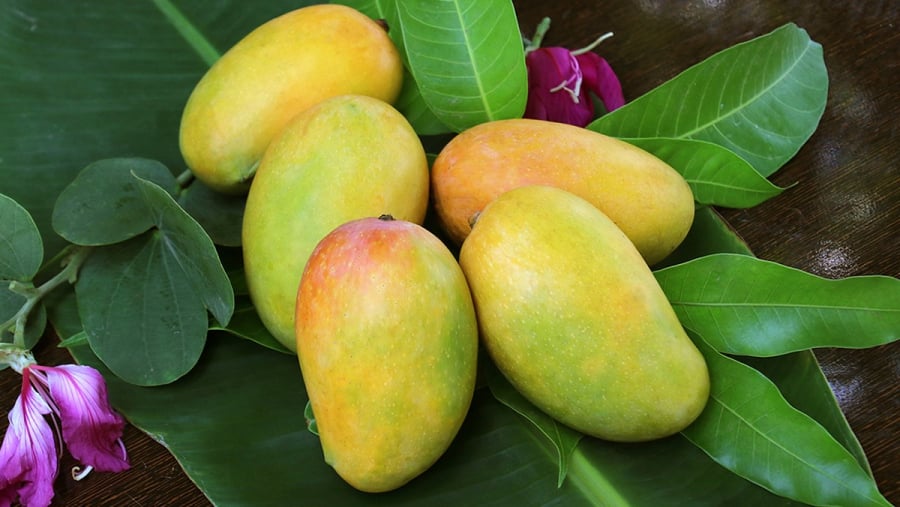
Mangoes are one of the types of fruit that are prone to being soaked in preservatives.
Tips for Choosing Delicious and Safe Mangoes
To select mangoes that are not only tasty but also free from excessive chemicals, keep the following tips in mind:
– Avoid mangoes with black spots on the stem: Mangoes that are golden yellow but have black spots near the stem are usually not as tasty and may have been soaked in chemicals.
– Check for color and ripeness: Naturally ripe mangoes have a uniform golden yellow color, free from any green or black patches. Mangoes with green skin but a ripe yellow interior and a bland taste are likely to have been treated with chemicals.
Benefits of Naturally Ripe Mangoes
Naturally ripe mangoes are not only delicious but also packed with nutritional benefits. Mangoes improve memory, are beneficial for pregnant women, and are suitable for diabetics. However, consuming mangoes treated with chemicals can have severe health consequences.
Therefore, when buying mangoes, pay close attention to your selection to ensure the safety of your health and that of your family.
Bitter Melons
Bitter melon, also known as bitter gourd or balsam pear, is a common vegetable in Vietnamese cuisine. However, it is highly susceptible to insect pests. To combat this problem, many farmers use chemicals to protect their crops from insects. This practice poses a challenge for consumers who want to buy bitter melons that are safe and free from chemicals.
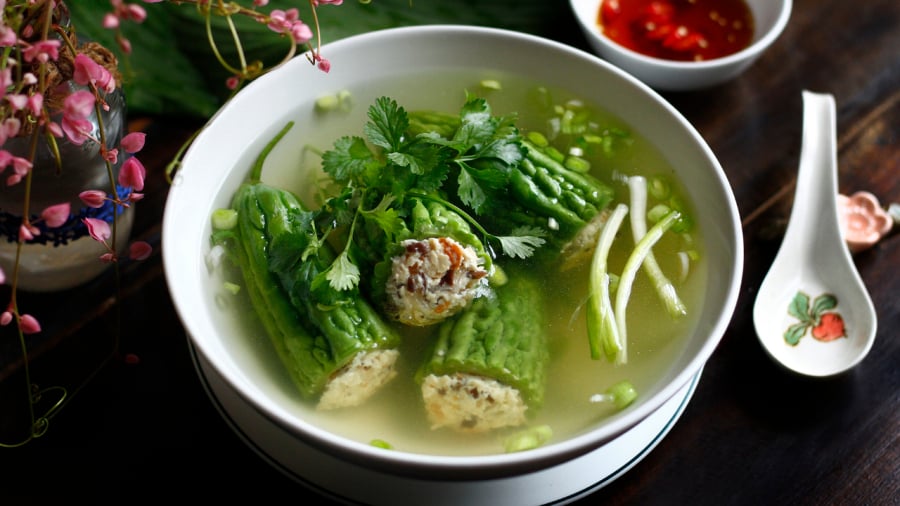
Bitter melons are a popular vegetable in Vietnamese cuisine but are susceptible to insect pests.
How to Choose Safe and Chemical-Free Bitter Melons
To ensure you’re buying bitter melons that haven’t been soaked in chemicals, keep an eye out for the following characteristics:
– Opt for smaller, longer bitter melons: Bitter melons that are smaller in size and longer in shape are typically a sign of minimal or no chemical use.
– Examine the fibrous veins on the surface: Look for bitter melons with fine, tiny fibrous veins on the surface. This is a sign of natural bitter melons that haven’t been treated with growth stimulants.
– Avoid shiny, oversized bitter melons: Bitter melons that are unusually large, with dark green, shiny skin and a swollen shape, are likely to have been treated with chemicals to enhance their freshness and stimulate rapid growth.
Why Choose Naturally Grown Bitter Melons?
Naturally grown bitter melons not only taste better but are also safer for your health. Consuming bitter melons soaked in chemicals can lead to severe health issues. Therefore, it’s essential to be cautious and selective when purchasing bitter melons to ensure the well-being of your family.

























